15th Jun 2022
3 Reasons Why Patients Don’t Feel Well On T4-Only Medication
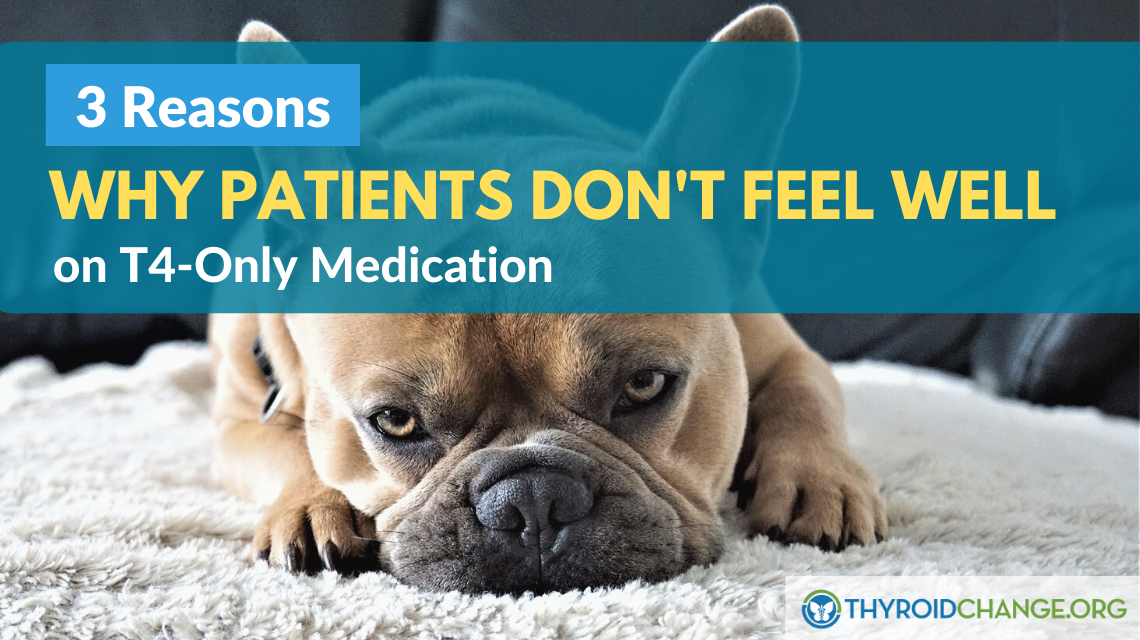
What You'll Learn:
- Why are hypothyroid patients still suffering?
- What is T4 (thyroxine) hormone?
- What is the standard treatment for hypothyroidism?
- What impacts the efficacy of T4-only medication?
- What are the alternatives?
Those who are feeling sluggish, have difficulty thinking clearly, and seem to be incapable of losing unwanted weight may be suffering from hypothyroidism. This common thyroid disorder is not only difficult to diagnose but also challenging to treat.
Hypothyroidism is a common disorder described as a decline in thyroid activity that results in a decrease of thyroid hormone.
Poor thyroid function contributes to a slowing of numerous systems throughout the body and is typically accompanied by symptoms such as fatigue, depression, aches and pains, infertility, hair loss, and cognitive difficulties.
Experts estimate that anywhere between 10 to 40 percent of Americans suffer from undiagnosed hypothyroidism. Sadly, many of these individuals do not improve even if they receive treatment for their condition. This is most often due to reliance on ineffective T4-only approaches.
Sadly, many hypothyroid patients are receiving suboptimal care in the form of T4-only treatments (ie. levothyroxine, Synthroid).
Effectively treating thyroid disease in any form requires patient-specific optimization of many different systems throughout the body. Unfortunately, much of the medical community incorrectly believes that hypothyroidism can be resolved with a standardized one-size-fits-all approach.
This has caused many patients to suffer from continued symptoms of hypothyroidism despite receiving treatment for their condition.
______
What is T4 (Thyroxine)?
The thyroid is a small gland located at the base of the neck. This system is responsible for regulating numerous bodily functions including energy level, mood, focus, weight management, and more.
Before diving into thyroid hormone replacement medication options when there is a lack of thyroid hormone produced or available to every cell in the body, it’s important to understand what T4 is in relation to the other thyroid hormones.
The most notable are:
1. Thyroxine (T4):
T4 is the storage form of thyroid hormone that can be converted to T3.
2. Triiodothyrononine (T3):
T3 is the active form of thyroid hormone that accelerates bodily activity.
3. Reverse Triiodothyrononine (RT3):
Reverse T3 is the opposite or mirrored form of T3 that helps regulate the effect of T3.
T4 (thyroxine) is the main hormone secreted into the bloodstream by the thyroid gland. It contains four iodine atoms, hence the name “T4” and is considered the “thyroid storage hormone”.
To have an effect on the body, it needs to be converted to T3 (triiodothyronine) by the removal of an iodine atom. This conversion happens mainly in the liver and in certain tissues where T3 acts, such as in the brain.
Then, about 20% of T4 converts to a “mirror image” version of T3 called Reverse T3 (reverse triiodothyronine). Reverse T3 will bind to thyroid receptors but not activate them, and will inhibit conversion of T4 into too much T3. Reverse T3 can be thought of as a type of “regulator” for the conversion to take place.
The important point for the purpose of this article is that T4, the storage hormone, must convert to T3, the active thyroid hormone, for cellular use and to resolve hypothyroid symptoms.
______
The Standard Treatment for Hypothyroidism
The standard method of treating hypothyroidism is hormone replacement therapy with levothyroxine; the generic brand for synthetic T4 to replace the inadequate amount of the thyroid storange hormone, T4. This involves taking a once-daily pill in the morning at least an hour before the first meal of the day.
Perhaps the main reason that T4-only therapies have become the standard treatment for hypothyroidism is an over-reliance on TSH for assessing thyroid function.
Thyroid Stimulating Hormone (TSH) is the hormone responsible for triggering thyroid hormone production from the pituitary gland in the brain to the thyroid bland in the neck. Unfortunately, doctors continue to wrongfully assume that “normal” TSH levels equate to proper thyroid function and hormone values.
However, testing TSH only provides information on how well the body is communicating and not if its thyroid needs are being fulfilled and utilized by every cell of the body.
A full thyroid panel will give a much better picture of your overall thyroid status. You can order your own through LetsGetChecked.
Improving T4 levels with medication like levothyroxine can bring TSH values into the “normal” range but that does not necessarily mean the thyroid is working properly or optimally converting T4 to T3 (the active thyroid hormone).
Sadly, because of the misplaced trust in TSH values, many doctors believe that T4 medications are the only intervention needed to resolve hypothyroidism.
Additionally, because of this over-reliance, many patients continue to experience symptoms of hypothyroidism despite undergoing treatment and receiving reassurance from their doctor that their condition has improved.
In my practice, we have found that a combination approach of T4/T3 tailored to patients’ individual needs works for most patients while focusing attention on optimal thyroid panel ranges and careful attention to symptoms.
______
What Impacts the Efficacy of T4-only?
The concept behind T4-only treatment is that the synthetic hormone provided will naturally convert into T3 thereby improving thyroid function and alleviating hypothyroidism.
However, common components of hypothyroidism including conversion issues, transportation problems, and autoimmune disorders significantly reduce the efficacy of T4 treatments.
1. Conversion Issues
To maintain healthy bodily function, T4 must be converted into T3. Disruption or limitation of the conversion process results in a T3 deficit and ultimately hypothyroidism.
If a patient’s condition is caused by poor T4 to T3 conversion, the standard treatment of supplying the body with additional T4 provides little benefit. In fact, the addition of T4 can actually make the condition worse.
Two common causes or poor thyroid hormone conversion are chronic stress and adrenal dysfunction. If the body remains in a heightened state of stress and/or adrenal activation, conversion of T4 to T3 decreases while conversion of T4 to RT3 increases.
Therefore, in this type of situation, treatment with only levothroxine tend to exacerbate the issue. Worse still, patients with conversion issues often exhibit “normal” TSH levels, which can lead to an incorrect diagnosis.
2. Transportation Problems
In order to influence bodily function, thyroid hormone must be delivered to the appropriate cells and tissues. There are multiple factors that may impede thyroid hormone transport including:
- Health conditions such as insulin resistance, hyperlipidemia, and diabetes
- Mood disorders including depression, anxiety, and bipolar disorder
- Chronic conditions like fibromyalgia, chronic fatigue syndrome, and leaky gut
- Neurodegenerative disorders such as Parkinson’s and Alzheimer’s
Problematically, hypothyroidism and other forms of thyroid dysfunction increase the risk of developing the above conditions thereby creating a cycle of declining thyroid function.
Levothyroxine-only treatments do not improve hypothyroidism caused by poor hormone transportation. If the body’s ability to deliver thyroid hormone is inhibited, additional T4 will simply remain unused, which increases the risk of hormone imbalances.
3. Autoimmune Disease
One of the leading causes of hypothyroidism is an autoimmune disorder known as Hashimoto’s thyroiditis. The condition causes an individual’s own immune system to attack their thyroid resulting in reduced thyroid activity.
Autoimmune thyroid disorders are notoriously difficult to diagnose and treat.
It is often the case that Hashimoto’s patients being treated with levothyroxine-only experience minimal and at most, a temporary improvement of their condition.
In order to effectively treat hypothyroidism caused by autoimmune dysfunction, a more thorough multi-system approach must be taken. Doing so allows for individualized optimization of the multiple systems and factors involved.
______
Summary: T4-Only Works Some of the Time
The incorrect and dangerous belief that all cases of hypothyroidism can be resolved simply through levothyroxine-only treatments has pervaded the medical community.
It is often the case that factors of hypothyroidism such as poor conversion, limited hormone transport, and autoimmune disease are present in patients, which dramatically reduces the efficacy of T4-only medications (ie. levothyroxine, Synthroid).
Only through thorough understanding of hypothyroidism and its underlying causes can the issues of levoxthyroxine-only treatments be avoided and one’s condition improved. Many do well with a combination approach of levothyroxine and liothyronine.
For assistance in finding a good thyroid doctor, please visit our Find a Doctor page.
To order a thyroid panel beyond just TSH, visit LetsGetChecked. They have a user-friendly app and easy, home-kit finger prick system. Plus, it’s affordable! Use code “ThyroidChange” for 20% off.
Updated 11/21/2020
Note: All opinions are of my own, but since this page contains affiliate links, I may earn a small commission for my reviews on comprehensive thyroid care.
Resources
1.H F Escobar-Morreale et al. “Replacement therapy for hypothyroidism with thyroxine alone does not ensure euthyroidism in all tissues, as studied in thyroidectomized rats.” Endocrinology 137(6):2490-2502.
2.Kent Holtorf, MD. “Thyroid Hormone Transport into Cellular Tissue.” Journal Compilation, AARM, DOI 10.14200/jrm.2014.3.0104
3.Kent Holtorf, MD. “Understanding Local Control of Thyroid Hormones: (Deiodinases Function and Activity).” https://www.nahypothyroidism.org/deiodinases/
4.Kent Holtorf, MD. “Diagnosis of Hypothyroidism: Are we getting what we want from TSH testing?” https://www.nahypothyroidism.org/how-accurate-is-tsh-testing/
5.Kent Holtorf, MD. “Why Doesn’t My Endocrinologist Know All of This?” https://www.nahypothyroidism.org/why-doesnt-my-doctor-know-all-of-this/
6.Kent Holtorf, MD. “Tissue and pituitary levels of T3 with T4 only preparations.” https://www.holtorfmed.com/download/thyroid-fatigue-and-weight-loss/Tissue_Levels_of_T3_with_T4_Only_Preparations.pdf
7.Fraser, W D et al. “Are biochemical tests of thyroid function of any value in monitoring patients receiving thyroxine replacement?” British medical journal (Clinical research ed.) vol. 293,6550 (1986): 808-10.8.Kent Holtorf, MD. “Standard thyroid tests lack the accuracy to determine the proper dose of thyroid replacement.” https://www.holtorfmed.com/download/thyroid-fatigue-and-weight-loss/Standard_Thyroid_Tests_and_Proper_Thyroid_Dose.pdf
About the Author
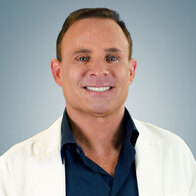
Kent Holtorf, MD is a ThyroidChange contributing author, an American physician, and a board examiner of the American Board of Anti-Aging Medicine (ABAAM). Dr. Holtorf is the founder and medical director of the non-profit, multidisciplinary medical society, The National Academy of Hypothyroidism (NAH) which is dedicated to the dissemination of new information on the diagnosis and treatment of hypothyroidism.
Dr. Holtorf is also the founder of Holtorf Medical Group , a practice of five centers that specializes in the treatment and management of medical conditions and disorders including adrenal fatigue, complex endocrine dysfunction, hypothyroidism, and more.
SIMILAR ARTICLES
More like this...
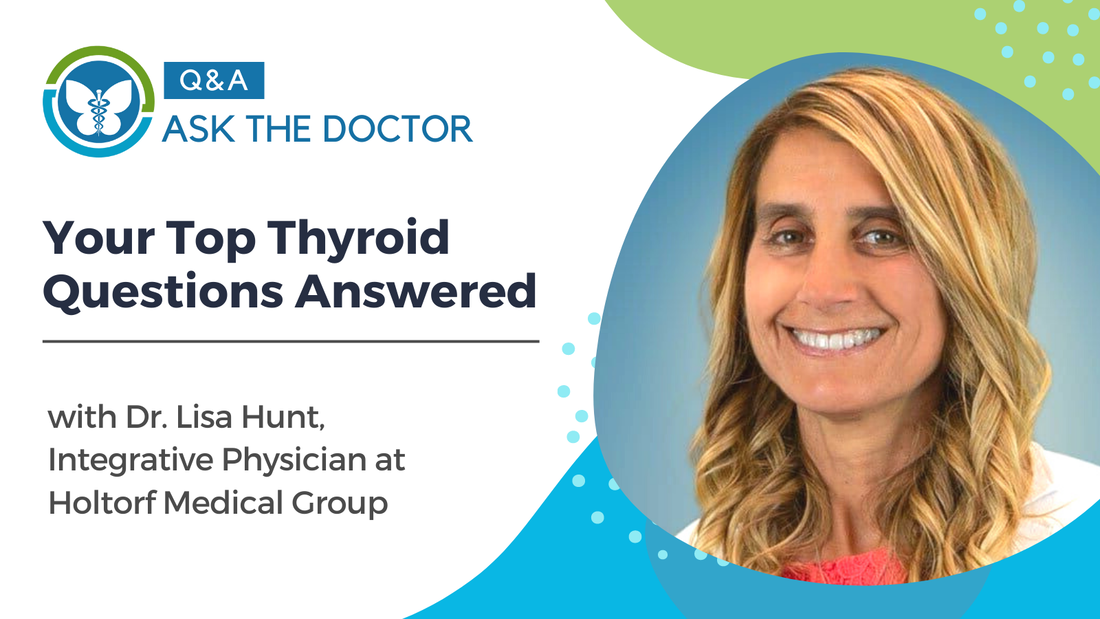
15th Jun 2022
Your Top Thyroid Questions Answered: Q&A with Dr. Lisa Hunt of Holtorf Medical Group
I had the pleasure of speaking with Lisa Hunt, D.O., an integrative physician at Holtorf Medical Group (www.holtorfmed.com) in El Segundo, CA a short while ago. I polled my audience and your top thyroid-related questions are answered here by Dr. Hunt. Dr. Hunt is a board-certified integrative physician and has extensive experience in thyroid health, hormone replacement, immune dysfunction and chronic conditions.
Read Article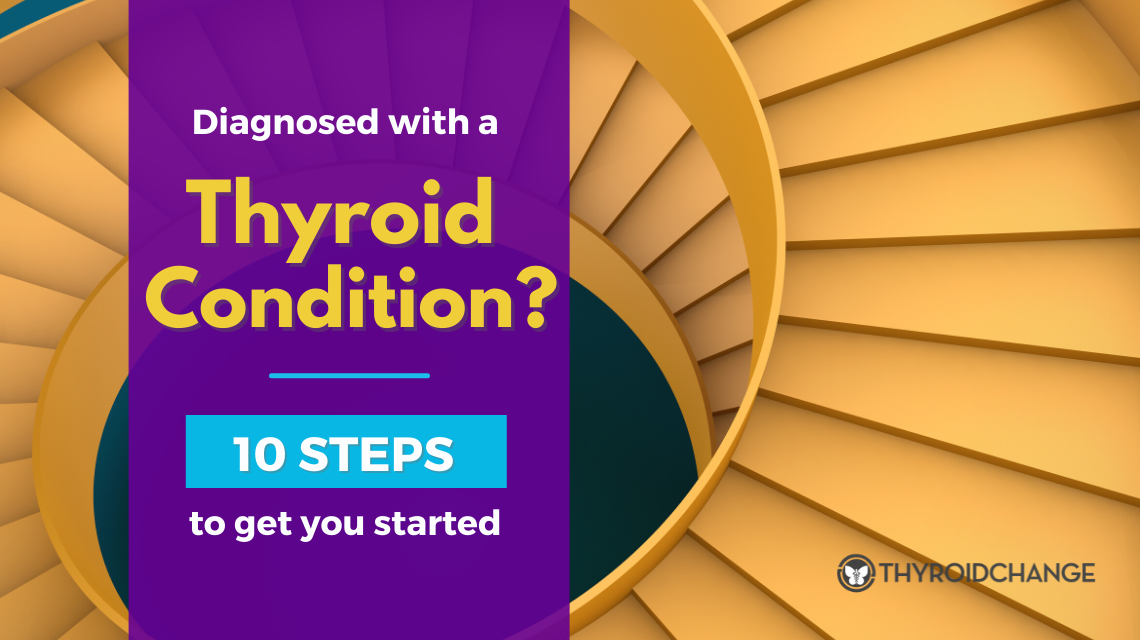
15th Jun 2022
Diagnosed With a Thyroid Condition? 10 Steps to Get You Started
Pursuing proper treatment and an overall healthy lifestyle that includes eating well and exercising can help you manage a thyroid condition. But what else can you do to live well with and thrive with your condition? The information can be overwhelming and Annabel Bateman, thyroid health advocate and author, has created this guide to walk you through essential lifestyle tips once you have been diagnosed.
Read Article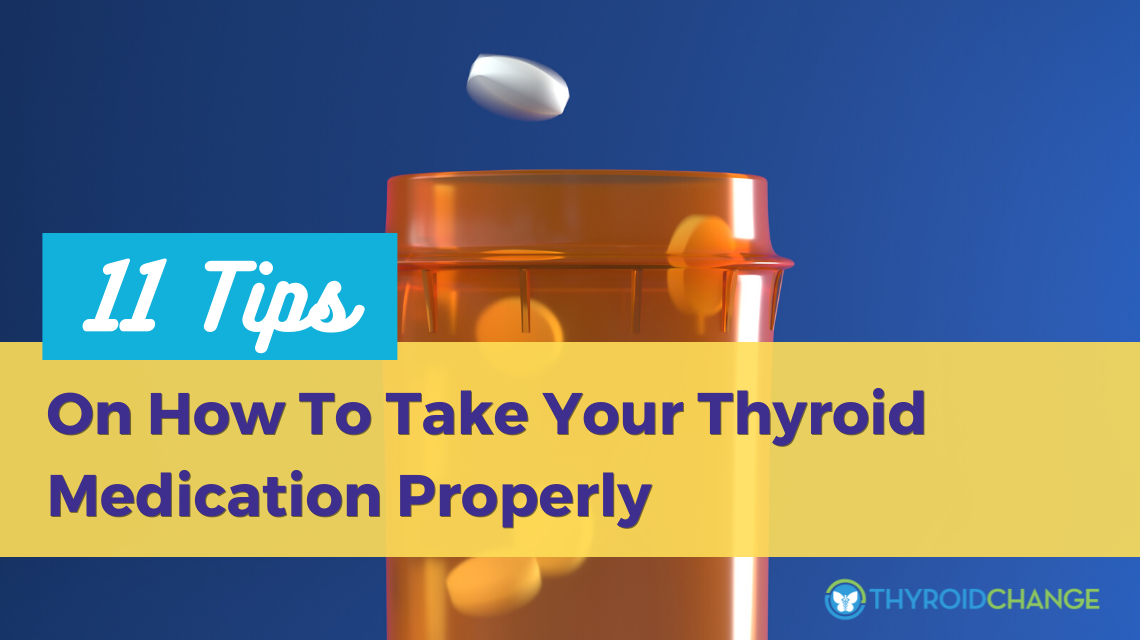
15th Jun 2022
11 Tips On How To Take Your Thyroid Medication Properly
Are you taking your thyroid hormone replacement medication correctly? Did you know that how and when you take your thyroid medication can affect your ability to absorb the necessary hormone properly? In the article below, I investigate the factors that contribute to correctly (or incorrectly) taking thyroid replacement hormone and on how thyroid patients can get the most out of their medication.
Read Article